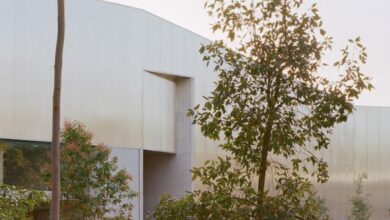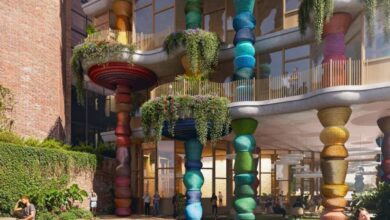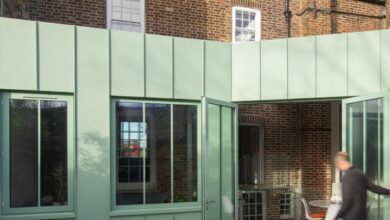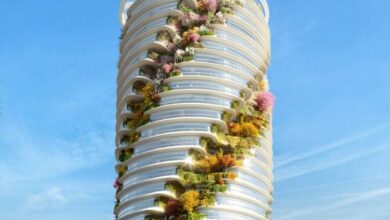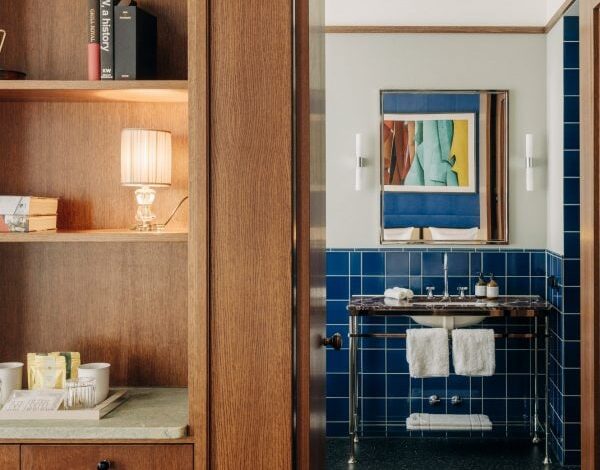
Irina Kromayer designs Château Royal to feel “authentic” rather than retro
[ad_1]
Interior architect Irina Kromayer has overseen the design of Berlin‘s Château Royal hotel, creating a series of eclectic spaces that reference the heyday of the German capital at the turn of the 20th century.
The 93-room Château Royal is located in the heart of Mitte, on a street parallel to Unter den Linden boulevard and close to the iconic Brandenburg Gate.
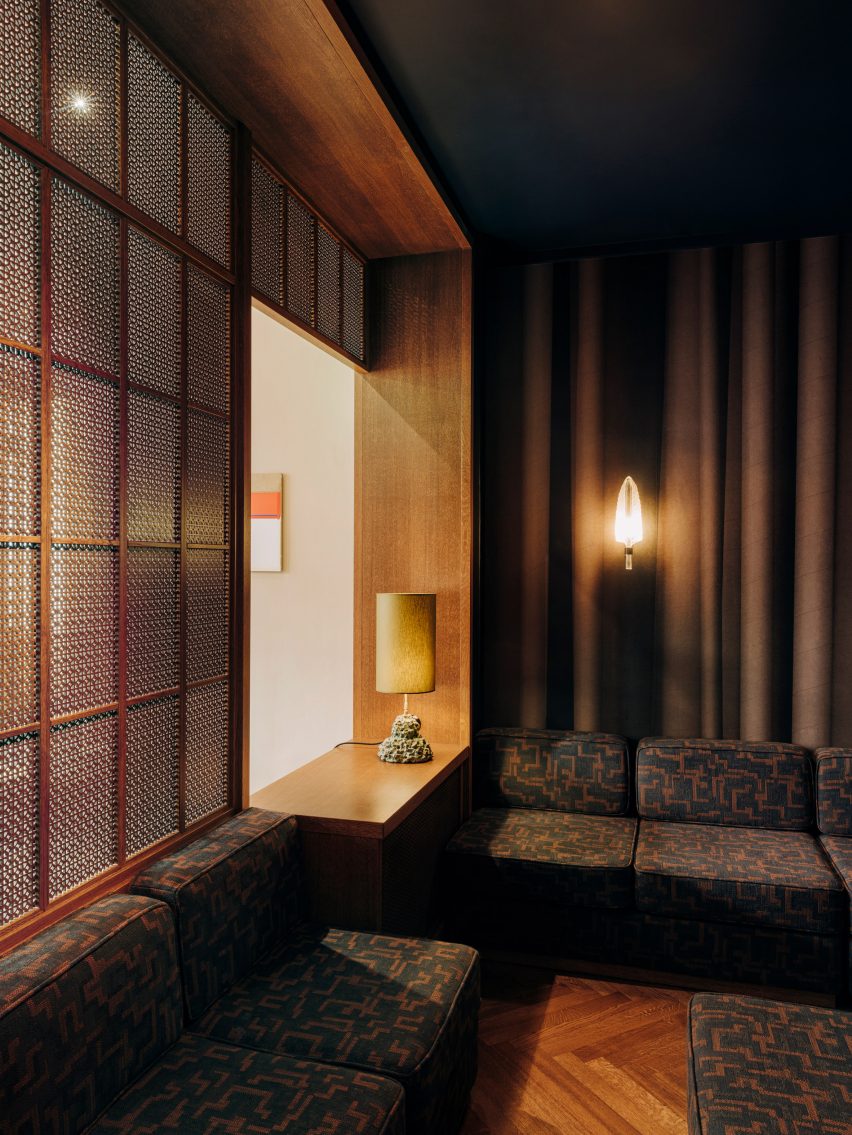
The hotel comprises two buildings dating from 1850 and 1910, as well as a newer building and roof extension designed by David Chipperfield Architects.
The renovation project, led by Kromayer with support from Swiss architect Etienne Descloux and interior designer Katariina Minits, aims to reflect the periods during which the heritage-listed buildings were constructed.
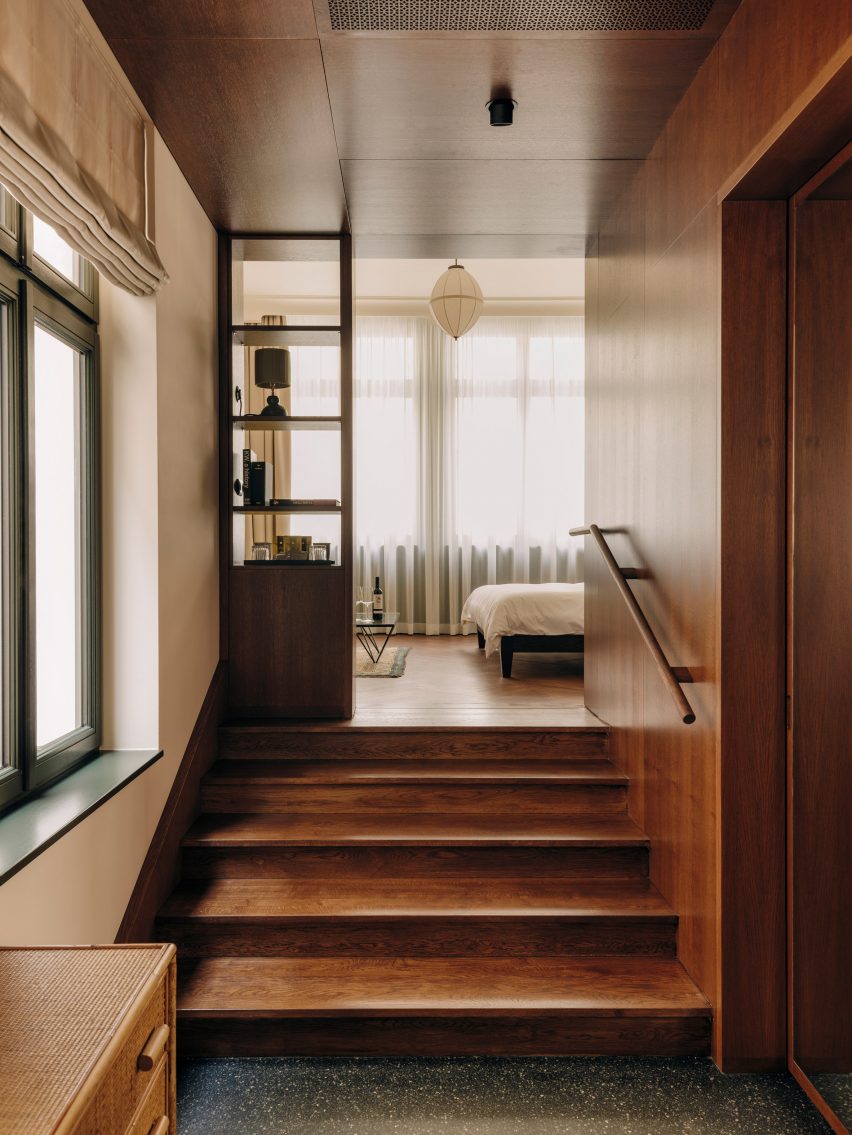
“Our design goal was to provide the traveller with an ‘authentic’ experience of being in Berlin, using materials and colours that traditionally stand for the city’s heyday,” Kromayer told Dezeen.
Oak panelling, art nouveau tiles, sisal carpets and hardware in brass and nickel were incorporated into the scheme based on the finishings commonly found in Berlin’s historic buildings.
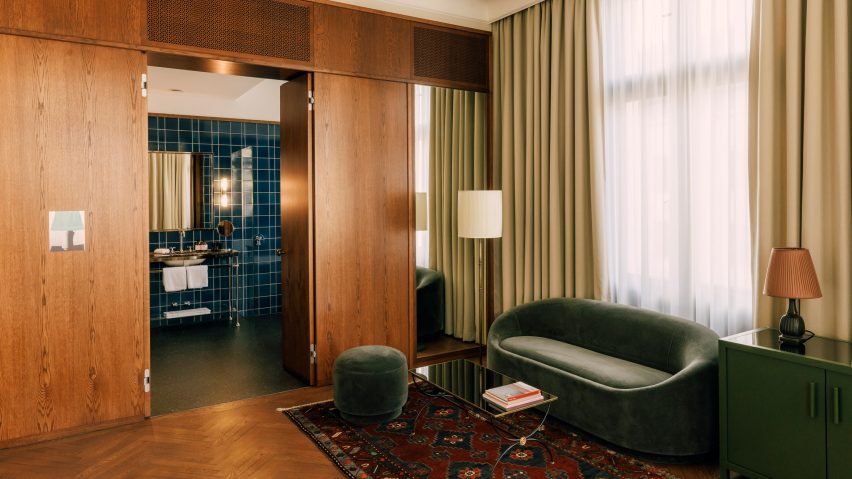
Kromayer designed much of the furniture herself – as well as in collaboration with Porto-based German designer Christian Haas – in order to achieve a seamless merging of contemporary and classic details.
“We didn’t want the hotel to be retro but rather to feel classic so we simplified things into less decorative shapes,” she explained.
In addition, vintage pieces were sourced from all over Europe to give a lived-in “patina” to the interior and explore a more sustainable approach to furniture sourcing.
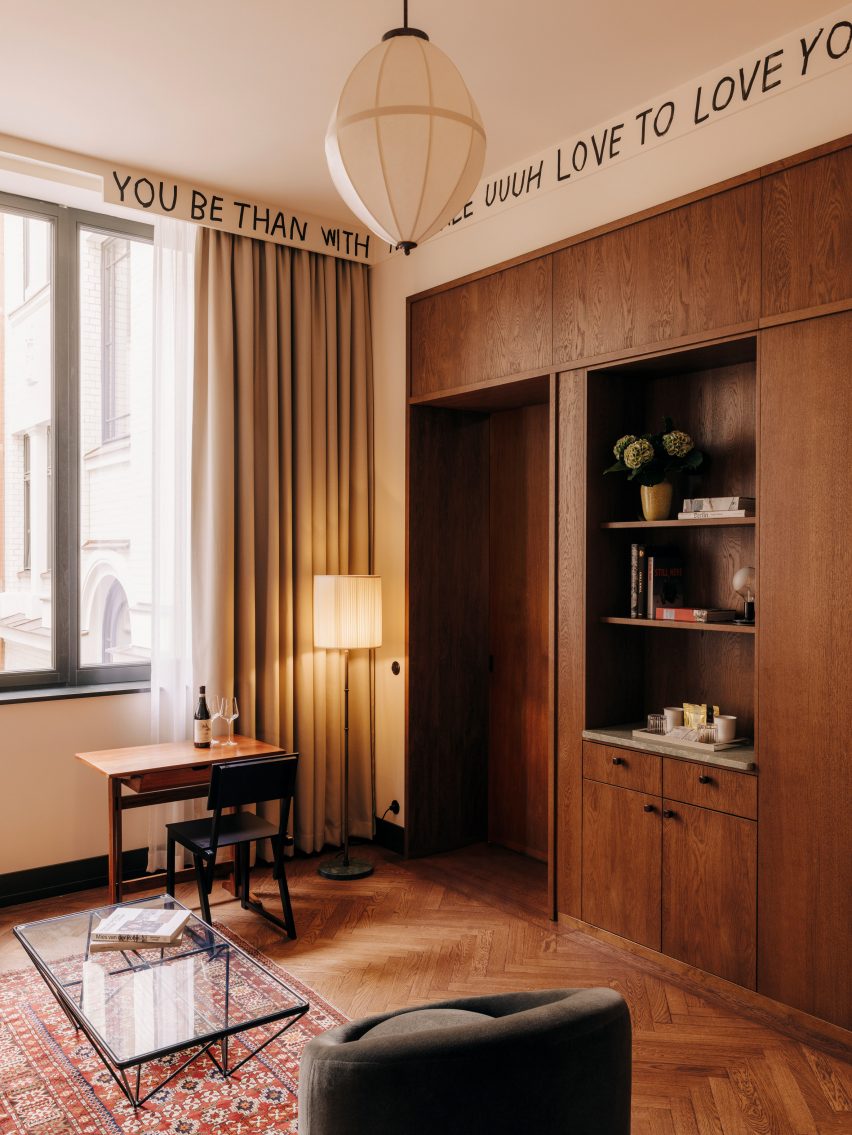
The pendant lights for the guest rooms were created in collaboration with Berlin-based manufacturer Loupiotte and are intended to emphasise the building’s high ceilings.
Made from Japanese paper and brass, the lamps are based on a 1920s design from Josef Hoffmann, one of the co-founders of the Wiener Werkstätte art movement.
The hotel’s custom-made wooden beds feature headboards crafted from Viennese wickerwork. Kromayer also created outdoor lanterns that reference traditional Berlin street lights and include unique glass panels made by artist Paul Hance.
Built-in joinery found in each of the bedrooms was informed by the partition walls with integrated storage, which are typical of traditional West Berlin apartments.
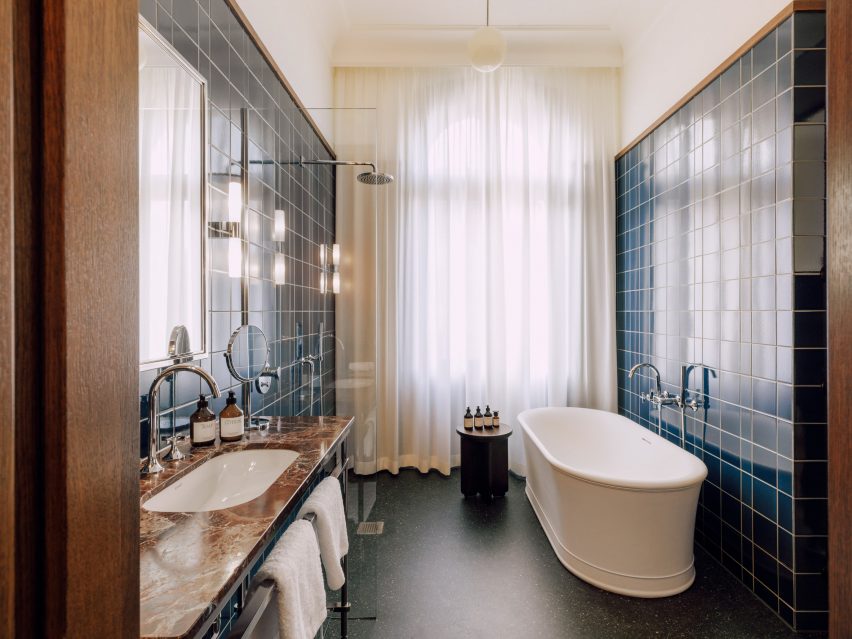
Paintings by early 20th-century artists associated with the expressionist and new objectivity movements influenced the hotel’s bold colour scheme, which is applied across surfaces including tiles and upholstery textiles, along with curated artworks.
The interior features colourful glazed bricks and tiles similar to those found in Berlin’s underground stations, as well as stained glass and coloured marble.
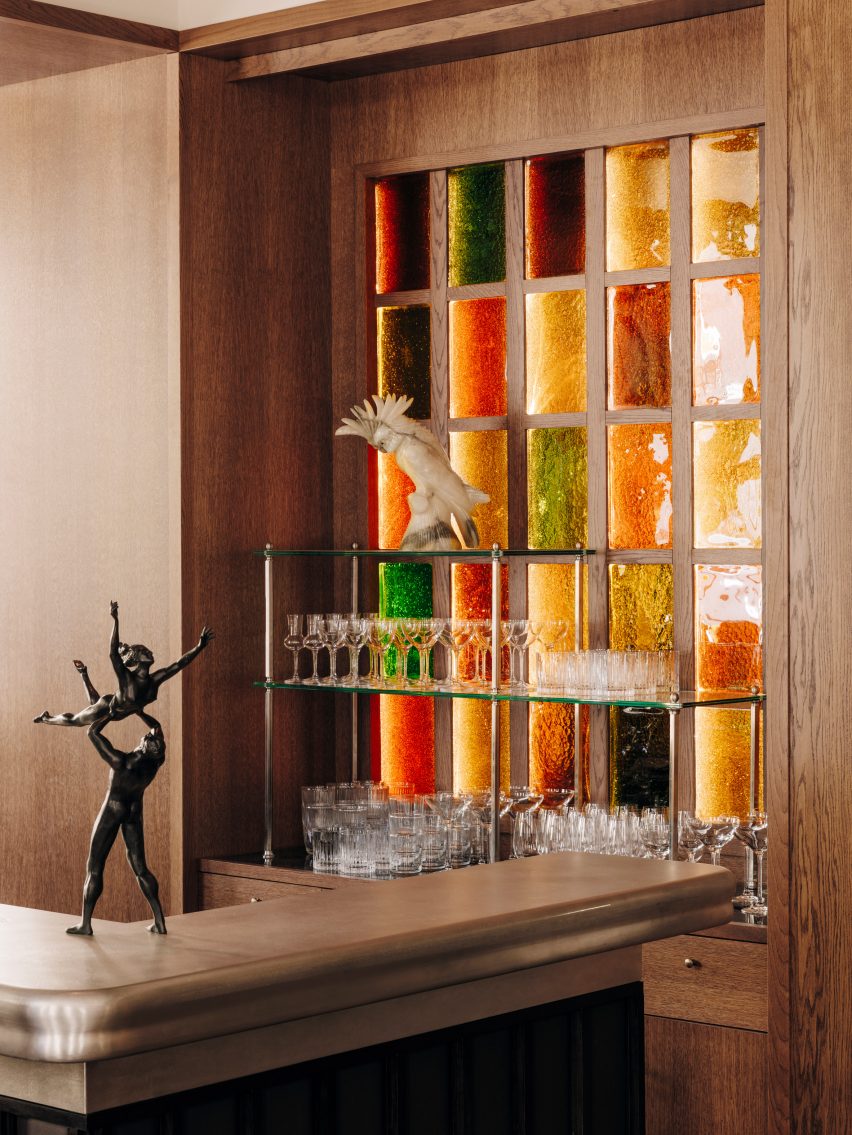
The hotel bar is made from tin – a material Kromayer says was widely used at the turn of the century but is rarely found in contemporary German interiors. Nickel and chrome bathroom fixtures were chosen to reference the modernist and Bauhaus design movements.
Alongside its guest rooms, which include 13 suites and an apartment, Château Royal also accommodates a lobby, bar, restaurant, private dining room, fireside lounge and winter garden.
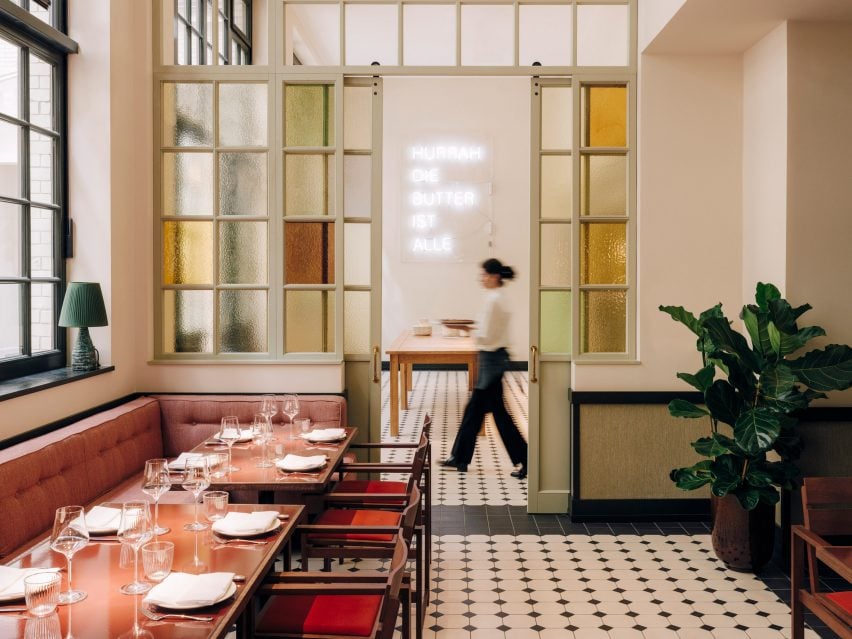
Built-in carpentry used throughout the public areas helps to create a sense of consistency with the bedrooms, while vintage furniture, rugs and lamps made for the hotel by KL Ceramics add to the eclectic feel of the spaces.
The hotel’s restaurant, called Dóttir, features upholstered oak seating by Bauhaus designer Erich Dieckmann. Artworks including a neon piece by Karl Holmqvist bring character to the ground-floor eatery.
Other recent renovation projects from Berlin include a pistachio-toned revamp of one of the city’s oldest cinemas and a hotel housed inside an abandoned women’s prison.
The photography is by Felix Brueggemann.
[ad_2]


